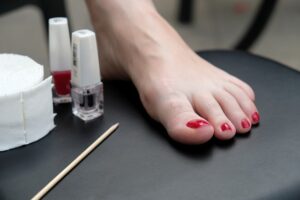Many people suffer from fungal infections at least once in their lives. Poor hygiene, humidity, and a warm climate are possible causes of fungal infections. Diaper rash, athlete’s foot, jock itch, and oral thrush are some common fungal infections. Although it goes by the name ringworm, this is not a worm but a fungus, it is also one of the most common types of fungal infections in humans. A reason athletes’ foot and jock itch are common is due to the moist, damp environment with no fresh air, this allows the fungus that is usually present on almost everyone’s skin to multiply and grow uncontrollably. While over-the-counter medicines and antifungal creams are readily available on the market, most fungal infections respond very positively to home remedies. Let us take a look at some of them.
Most Common Risk Factors for developing Fungal Infections:
- Living in hot and humid climates, sweating too much, or wearing damp clothes can result in the development of fungal infections.
- A compromised immunity due to underlying diseases like diabetes, HIV, cancer, etc. can cause fungal infections.
- Living in an unclean environment and not maintaining personal hygiene can cause fungal infections.
- Wearing dirty clothes like unclean socks and innerwear can lead to fungal infections.
- Wearing clothes that are too tight can cause sweating, providing the necessary moisture for the accelerated growth of fungi.

Home Remedies For Fungal Infection are:
1. Eat Yoghurt and Probiotics
Yogurt and other probiotics have an ample amount of good bacteria that help stave off many fungal infections. These fight off microbes that cause these infections. Fermented foods are another excellent source of probiotics. If these are not helping, you could use probiotic supplements that have more concentrated dosages of good bacteria.
2. Wash with Soap and Water
Clean the affected area with soap and water twice daily before you apply any home remedies or any other medication. This will control the spread of infection. While soap and water may not always be able to eliminate a fungal infection entirely, it helps to keep the spread down and lower the intensity of the infection.
3. Use Apple Cider Vinegar
Apple cider vinegar has antifungal properties. You could mix two tablespoons in warm water and drink it up or dip a cotton ball in it and dab it over your skin. Doing this thrice a day should produce beneficial results. Know more about vinegar.
4. Use Tea Tree Oil
Tea tree oil is naturally antifungal and antibacterial. Mix it with any carrier oil like coconut oil or olive oil and dab over the infected area about three to four times a day. This is one of the most effective home remedies to treat fungal infections.
5. Use Coconut Oil
even coconut oil works as a potent antifungal agent. Applying it over the skin makes it a good, safe topical medicine. Since it is easy on the skin, it is also useful to treat scalp ringworm. Use over the skin three times a day.
6. Use Turmeric
Turmeric is a potent antimicrobial and anti-inflammatory spice. Mix with a little water and apply over the infected area. To get benefits in the internal body environment, mix with warm water, or have turmeric tea. This is one of the easiest home remedies for fungal infection as turmeric is present in all Indian kitchens across households.
7. Use Aloe Vera
One of the most time-tested natural remedies to cure any skin infection is aloe vera. It not only treats the infection but also soothes and repairs skin damage.
8. Honey
Using honey is also one of the easiest home remedies for fungal infection as it contains hydrogen peroxide, very effective to kill fungi and bacteria which are responsible for causing skin infections. Applying raw honey to the affected region is the best solution as it is loaded with healing properties.